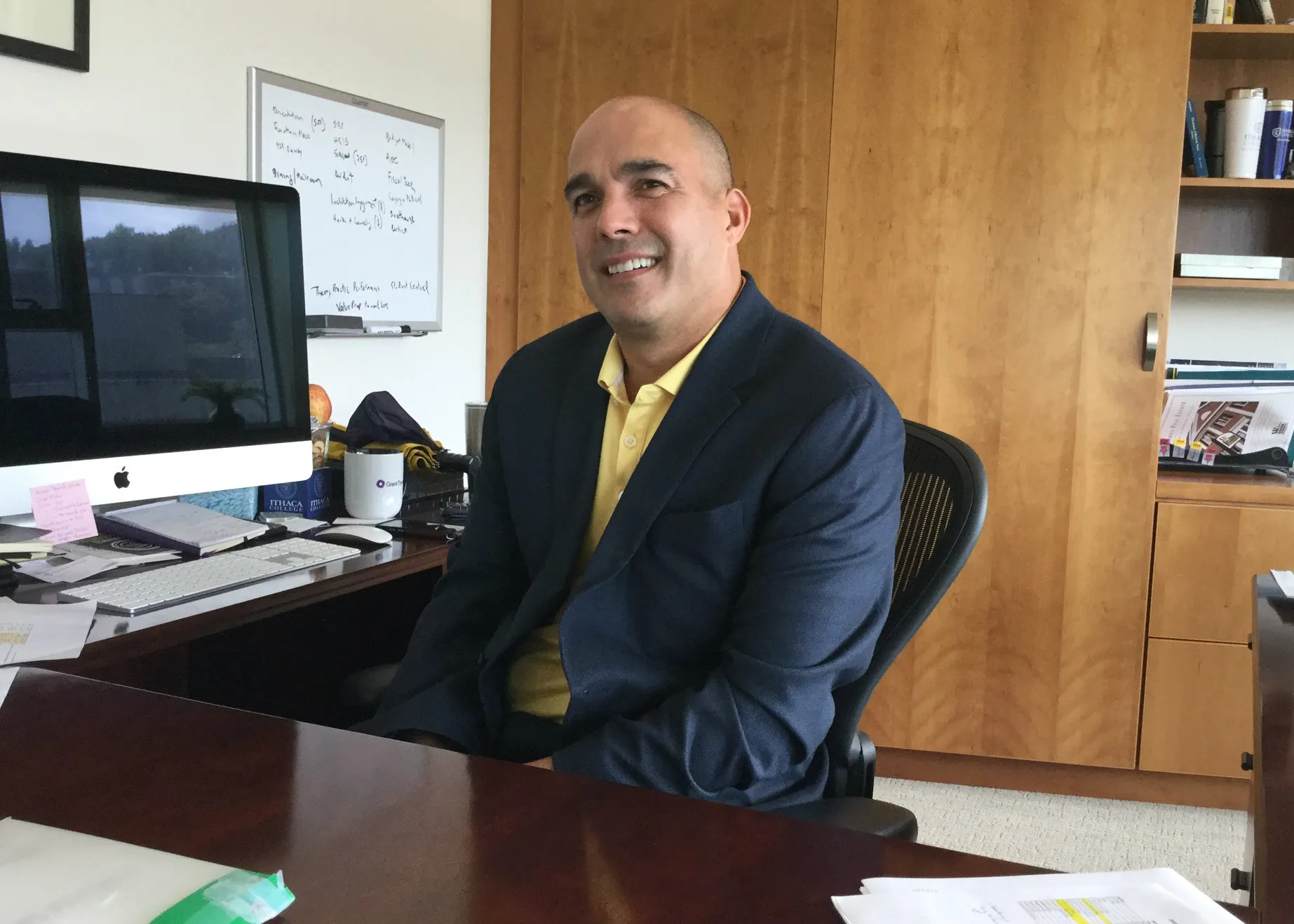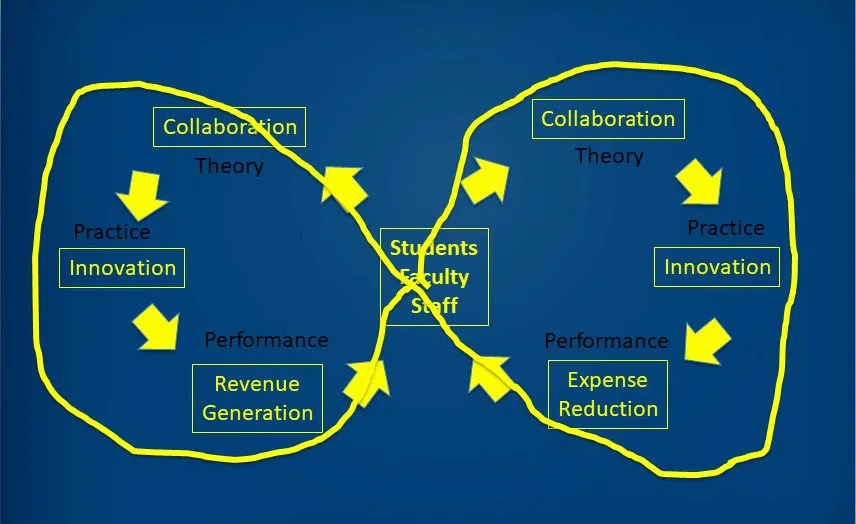Bill Guerrero joined Ithaca College on July 16 as vice president of the Division of Finance and Administration. He comes to IC with nearly two decades of experience in directing and improving financial performance in higher education and independent schools.
What do you bring to this position that you would like to put your stamp on?
My philosophy is to bring a student-centered approach to finance. So it’s not just a matter of focusing on revenue and expenses—a balance sheet—but thinking deeply about how to make the best decisions while considering the impact on students. I put an entrepreneurial and innovative spin on that, ultimately leading to what I believe will be improvements for students, both in the cost of attending and in the services provided to them.
How do you figure out how to balance the costs of providing services and the need to keep the expense of attending low for students?
The first thing is, you look at your overall efficiencies in how you are currently conducting business. Department A may have no idea that Department B is doing exactly the same thing, and so for this first month I’ve done a lot of visiting and talking with people, and a lot of listening, to understand the opportunities as well as the challenges. Once you start discovering some opportunities that exist, you can think of ways that turn out to be win-win. Someone’s job can be improved because you have created some different business processes, but also there can be savings that ultimately trickle down to lowering the expense. The flip side of that is the revenue side. There are so many people here—faculty and staff—who have tremendous ideas on how to leverage our intellectual capital in order to create opportunities that could supplement or generate non-tuition revenue for this campus.
What has surprised you the most since starting at IC?
Surprise might be too strong a word, but I would say a pleasant surprise is how collegial and team-oriented everyone has been, from the senior leadership team to the professional staff and the faculty I’ve talked with. Everyone is committed to the school, and they want to help support one another. I appreciate how much of their time everyone has given me when I reach out to talk.
Your son is a student at Ithaca College, and you attended the 125th anniversary celebration and President Shirley M. Collado’s inauguration last fall before you even were aware of this job opportunity. What did you learn at that event?
When I heard President Collado speak about the Ithaca College model of theory, practice, and performance, it really resonated with me, because it puts my entrepreneurial philosophy within an academic setting and lens. It has meaning not only within the classroom for our students, but also in the work that I do. We can have teams from across campus collaborating and talking about possibilities—that’s the theory. Then you get into the practice, which is figuring out how to test out the theory through implementation. And ultimately, if the theory is validated through market study, you put it into performance. My hope is that we can remove some barriers and get people all across the campus to talk to one another and think in this way, making it a continuous loop.

